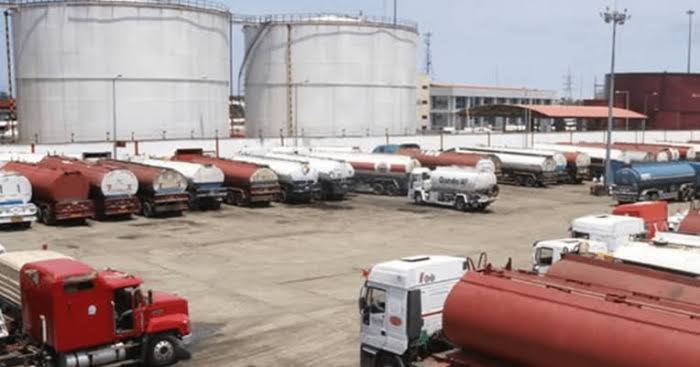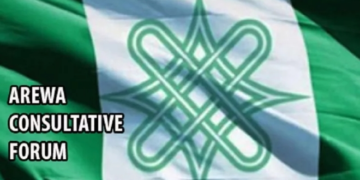Despite the intervention of the minister of state for petroleum resources (oil), Heineken Lokpobiri, the strike embarked by members of the Nigerian Association of Road Transport Owners (NARTO) has continued into the second day following the failure of the federal government and oil marketers to reach agreement with the transporters.
This is as long queues built up at fuel stations in Abuja, the Federal Capital Territory (FCT) in the wake of the NARTO strike.
A meeting conveyed by Lokpobiri with NARTO, oil marketers and the Nigerian Midstream and Downstream Petroleum Regulatory Authority, NMDPRA, in Abuja ended with an agreement.
Senator Lokpobiri told journalists that the meeting will continue as the government seeks to find a solution to issues raised by the transporters.
The minister said, “We have been engaging with different stakeholders in the downstream petroleum industry based on some concerns which were raised. The engagements are still continuing and we hope that we will be able to find solutions to those concerns as soon as possible. Engagement will continue tonight till tomorrow.”
He, however, noted that the issues with the transporters had nothing to do with the government.
“But it should be pointed out very clearly that they have demonstrated utmost good faith and patriotism. It should also be known that the issues have nothing to do with the government. It is basically commercial, but as a government we have decided to intervene so that Nigerians will not suffer unduly”, he added.
NARTO had threatened to stop the lifting of petrol over high cost of operations.
NARTO national president, Alhaji Yusuf Lawal Othman, explained that the tanker owners had been recording huge losses due to high cost of operation, which is no longer sustainable.
In a move to address the financial strain on its members, the association formally notified the federal government and the Major Energy Marketers Association of Nigeria of its decision to suspend operations.
As a result of this development, many fuel stations have shut down operations as few independent marketers who remained operational had longer queues.
The Nigerian National Petroleum Company Limited (NNPCL) retail outlets that managed to stay open offered the product at the usual N617 per litre, attracting long queues of motorists desperate to secure fuel amid uncertainty.
Adding to the chaos, black marketers, as usual, seized the opportunity to exploit the situation, selling 10 litres of petrol for as much as N850 per litre as against between N640 and N680, but in plastic containers.
However, in Lagos motorists remained calm on the first day of NARTO industrial action as most filling stations attended to a manageable queue.
For example, the North West Petroleum with usually several dispensing pumps in Maryland freely attended to motorists that queued to buy products
A TotalEnergies outlet close to Sheraton Hotel, Ikeja, shut out motorists in the morning because a tanker of petrol was emptying its content into the reservoir.
Our Correspondent who monitored compliance noticed close to normalcy in Lagos, indicating that people were not ready for panic buying.
The executive secretary of Major Energies Marketing Association of Nigeria, MEMAN, Mr. Clement Isong, in response to the situation, said individual marketers are discussing and agreeing transport rates with their individual transporters.
Isong explained that the PIA and the FCCPC Act do not permit jointly setting rates and prices, and doing so would be anticompetitive and against the law.
He said while speaking with our Correspondent, “One of the key benefits of pump price deregulation is competition that forces operators, transporters and marketers alike, to seek cost reduction and innovation to bring the best value to customers.”
He however said the operating environment is extremely difficult for all operators, especially with the impact of the almost daily fluctuations in exchange rate on supply chain costs, and managing this volatility will remain a challenge to petroleum products distribution for the foreseeable future.
Also in a statement later yesterday, MEMAN expressed concern at the strike initiated by NARTO and the Petroleum Tanker Drivers (PTD) which started yesterday.
The Association clarified that there’s no conflict between its members and the transport unions, adding that individual marketers are in discussions with their transporters for fair rates, and adhering to the Petroleum Industry Act and FCCPC Act, which prohibit jointly setting rates.
It said that pump price deregulation promotes healthy competition, encouraging cost-reduction measures for better customer value but said it is a gradual process that requires time for full price recovery and market competition.











